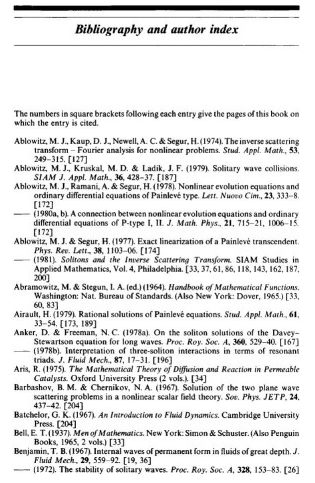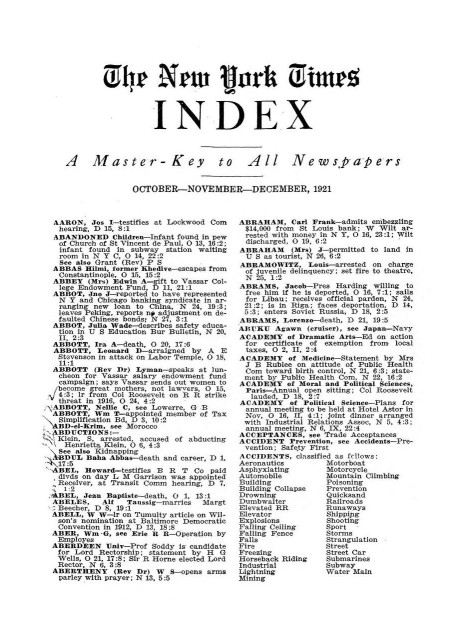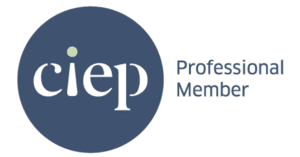In the digital age, where information is abundant, navigating a book efficiently significantly impacts a reader’s engagement and overall experience. Book indexing transforms reader engagement and navigation by offering a systematic guide to locating specific information within the text. Instead of aimlessly flipping through pages, a well-structured index provides instant access to key themes, topics or references. When expertly executed, this process revolutionises the way your readers interact with a book by offering them an efficient roadmap through the text. However, the art of indexing demands precision and expertise. While you may have attempted to craft indexes independently, professional input often yields superior results. An experienced editor proficient in book indexing ensures accuracy and optimises the index’s usability. This post will explore how book indexing reshapes reader engagement and navigation.
- What is book indexing?
- What is the purpose of book indexing?
- Types of indexing
- How book indexing improves of reader engagement and navigation?
- Factors influencing effective book indexing
- Challenges in book indexing
- Why do you need a book indexing expert?
- How do you find a book indexing expert?
- How much should you pay for book indexing services?
What is book indexing?
Book indexing carefully crafts a roadmap within a book that organises content into a structured and easily accessible format. It is more than a mere compilation of words or concepts; it is a complex system that catalogues key topics, names and essential concepts and it is often found at the back of a book. Moreover, this systematic arrangement offers readers a quick and efficient way to pinpoint specific information or topics within the book’s contents. Essentially, book indexing is the book’s GPS that allows readers to navigate its wealth of information effortlessly.
What is the purpose of book indexing?
The fundamental purpose of book indexing is to facilitate readers’ access to specific information within a book’s vast content. An effectively structured index enhances the value of your work by offering readers a streamlined way to navigate complicated subjects or chapters. Book indexing does not just guide readers; it serves as a beacon, directing them to important information, citations or discussions. This process is equally beneficial for academic writers because book indexing helps researchers and students to locate relevant data, theories or references efficiently.
Types of indexing
Besides indexes found at the end of book, indexes come in various forms, each tailored to suit different types of content and readership needs.
Bibliographic and database indexing

Bibliographic indexing provides records for items such as journal articles. Database indexes enable online access online journal articles. Most importantly, citations and subject details are defined according to set guidelines for that database.
Genealogical indexing
First, genealogical book indexing allows readers to look up people’s names and access information about family relationships. Second, genealogical book indexing eliminates the need to retrieve source materials such as cemetery inscriptions. Genealogical indexers are experts in examining and recording information about historical places and people.
Geographical indexing
Geographic indexing includes critical information on maps, atlases and other cartographic materials. Markedly, geographical indexes include names of places, topics, historical information, mathematical qualities like scale and lastly, coordinates and artistic features.

Legal indexing
Legal book indexing is a specialised practice centred around categorising legal materials based on their structure, type and substance. Professionals in this field deeply understand legal principles and categories, enabling them to transform complex classifications into coherent and user-friendly indexes. Consequently, their expertise extends beyond mere organisation; they are crucial in refining and maintaining existing indexes, ensuring their accuracy and relevance. Additionally, they meticulously curate tables outlining legislation and cases, contributing significantly to the ongoing accessibility and accuracy of legal resources.
Periodical and newspaper indexing

Periodical and newspaper indexing is a gateway to the contents captured within individual articles featured in serialised publications. To begin with, these indexes often rely on a controlled vocabulary, guaranteeing the consistent usage of terms across various editions over time. Facilitated by skilled periodical and newspaper indexers, these resources offer an accessible overview of topics discussed throughout the duration covered by the index. Moreover, these indexes can be annual compilations or cumulative archives, ensuring comprehensive access to information disseminated through newspapers and periodicals.
Website and metadata indexing
In the ever-growing landscape of automated search engines, human indexers remain indispensable in enhancing accessibility to information across the internet. Website indexes take various forms, such as structured hierarchical pages. They both seamlessly direct users to desired information. Basically, these indexes complement site maps and search engines, enhancing navigational efficiency. Additionally, metadata indexers are pivotal in refining the precision of web document access through search engines. They employ standardised elements like those utilised in database indexes and library catalogues, thereby refining and optimising the search experience for users seeking specific information online.
How book indexing improves reader engagement and navigation?
Reader engagement and navigation are paramount in the world of literature consumption. This is because readers seek a seamless experience that captivates their attention while allowing easy access to relevant content. Therefore, engaging your readers involves stimulating their interest and keeping them engrossed in the narrative or subject matter. On that condition, navigation addresses the ease with which readers can traverse the book’s content, swiftly finding what they seek without getting lost in a web of pages. A well-indexed book significantly influences these aspects. It enhances the reading experience by offering a structured pathway through the book’s landscape. Moreover, it empowers readers by enabling them to jump directly to sections of interest, fostering deeper engagement with the material.
Access to specific information
A well-constructed book index is a compass that enables readers to access targeted information swiftly. This means offering your readers a convenient pathway to dive directly into specific chapters, sections and most importantly, the discussions that align with their interests. Imagine a reader seeking information on character development in a novel or a specific theorem in an academic text; a carefully crafted index can guide them precisely to these sections thus, enhancing the overall experience.
Improved readability
Readability is the bridge between content and comprehension. A comprehensive index streamlines the reading experience, contributing to improved readability. It not only breaks down the complexity of content but also makes it digestible for readers. This is particularly vital for academic writers presenting complex theories or research findings. Moreover, a well-organised index not only aids in finding information but also contributes to the coherence and flow of the material. Furthermore, improved readability translates to a more engaging narrative flow that fosters reader immersion without the frustration of searching for relevant content.
Factors influencing effective book indexing
Keywords
Keywords are the cornerstone of effective book indexing. Strategic use of keywords within the index aids readers in swiftly locating specific topics or themes within your work. By incorporating keywords that reflect essential elements of the narrative or subject matter, you enable readers to navigate through chapters or discussions seamlessly.
Structure
The structure of an index dictates its usability and effectiveness. First, organising the index logically enhances the readers’ experience. Second, chapters, themes or subtopics should be presented coherently, reflecting the book’s structure and aiding in seamless navigation. Academic writers benefit from a well-structured index by systematically arranging complex theories, citations or methodologies. Last, a clear and intuitive structure assists the reader in comprehending the progression of ideas, theories or research findings presented within the academic work.
Challenges in book indexing
Subjectivity
One of the significant challenges in book indexing is the inherent subjectivity involved in the process. This subjectivity can impact the effectiveness of the index. However, deciding on which terms, concepts or themes to include and how to categorise them can vary based on individual perspectives. This subjectivity might result in varying interpretations of the book’s content, potentially affecting reader engagement and navigation. Similarly, in academic works, subjectivity can lead to differences in how researchers index complex theories or concepts, impacting the accessibility and comprehensiveness of the index. Therefore, addressing this challenge requires a balanced approach, aiming for objectivity while considering the readers’ perspectives and expectations.
Currency
Maintaining the relevance and accuracy of indexes poses another challenge. Updates might be necessary in self-publishing due to revised editions, additional content or corrections. Additionally, a dated index could misguide readers, leading to frustration and a diminished reading experience. Similarly, ensuring that indexes reflect the latest findings is crucial in academia, where new research constantly emerges. Also, outdated indexes can mislead researchers, hampering their ability to access current and relevant information. Overcoming this challenge involves regular reviews and updates, aligning the index with any modifications or additions to the book’s content.
Why do you need an expert in book indexing?
Precision in content organisation
Expert indexers possess a keen eye for detail and precision in content organisation. To begin with, their proficiency lies in creating an index and crafting a strategic roadmap that navigates readers through the intricacies of a book. Furthermore, they understand the nuances of structuring content, categorising topics and selecting relevant keywords to create a comprehensive index that resonates with the book’s essence. This precision ensures that readers can access specific information swiftly and accurately.
Eliminating subjectivity
Subjectivity often clouds indexing processes. This has the potential to impact the index’s effectiveness. An expert indexer employs objectivity in their approach, which in turn mitigates the influence of personal biases or interpretations. Also, they use their expertise to determine the most pertinent terms, concepts or references, ensuring that the index objectively serves the readers’ needs. This eliminates confusion and enhances the credibility of the index.
Ensuring reader engagement
An expert in book indexing comprehends the pivotal role of an index in reader engagement. They craft indexes beyond mere listings, engaging readers by offering a structured pathway to explore the book’s content. Moreover, expert indexers heighten reader interest by strategically arranging information and employing intuitive structuring. This encourages prolonged engagement with the material.
Adapting to evolving needs
The expertise of an indexer extends beyond just creating an index. First, it involves keeping pace with evolving trends and technologies. An expert indexer is adept at leveraging modern tools and techniques, embracing digitalisation without compromising the index’s quality. Besides, they understand the nuances of digital indexes, ensuring adaptability to changing reader preferences and technological advancements.
Maintaining relevance and accuracy
The importance of keeping indexes up to date must be considered. Expert indexers prioritise the maintenance of relevance and accuracy in indexes. They conduct meticulous reviews and updates, ensuring the index reflects any changes or additions to the book’s content. Consequently, this commitment to accuracy assures readers of a reliable resource.
How do you find an expert in book indexing?
Seeking an expert in book indexing involves identifying professionals who adhere to high standards and deeply understand the craft. Here are practical ways to locate proficient indexers:
Professional indexing organisations
Explore reputable indexing organisations such as:
- the American Society of Indexing,
- the Netherlands Indexers Netwerk,
- the Australia and New Zealand Society of Indexers,
- the Indexing Society of Canada,
- the Society of Indexers.
These organisations serve as hubs for skilled indexers. Membership in these societies indicates a commitment to professional development and adherence to ethical standards.
Check membership and credentials
Look for indexers who hold membership or accreditation in these esteemed organisations. Membership often signifies adherence to a code of conduct that emphasises ethical practices and ensures a certain quality in their work. Correspondingly, these professionals continuously update their skills through training, keeping abreast of industry advancements.
Referrals and recommendations
Reputable publishers often collaborate with professional indexers or recommend their services to authors. Seek recommendations from publishers, fellow authors or colleagues in the industry who have previously employed the services of an indexer. Furthermore, their firsthand experiences and referrals can guide you to proficient indexers.
Evaluate experience and specialisation
Assess the indexer’s experience and specialisation. Some indexers specialise in specific genres or academic fields. Review their portfolios or sample indexes to gauge their proficiency in handling diverse subjects. A seasoned indexer with experience in your book’s domain can offer valuable insights and accuracy in indexing.
Consultation and discussion
Arrange consultations or discussions with potential indexers. Engage in conversations to understand their approach, methodologies and timelines. Clear communication about project expectations and deadlines ensures a harmonious working relationship.
How much should you pay for book indexing services?
Determining the cost of book indexing services involves considering various factors and industry standards set by indexing societies across the globe. Here are insights into pricing structures recommended by prominent indexing organisations:
Society of Indexers
The Society of Indexers, established in 1957 in the UK, suggests rates starting from £32.70 per hour, £3.65 per page or £9.90 per 1,000 words for indexing non-academic texts. These rates serve as a baseline for indexing services in the UK and Ireland.
Indexing Society of Canada
Based on a survey by the Indexing Society of Canada, members charge from C$20 to C$65 per hour for indexing services. Typeset page fees range between C$1.85 to C$10, while manuscript page rates fluctuate between C$3 and C$8.
Australian and New Zealand Society of Indexers
The Australian and New Zealand Society of Indexers recommends a minimum rate of A$70 per hour for proficient indexers in Australia. Meanwhile, New Zealand’s current rate is NZ$55 per hour.
American Society of Indexing
The American Society of Indexing says book indexing service rates vary based on dedication, expertise and project type. Typical rates range from $2.50 to $4.00 per book page, translating to approximately $750 to $1,200 for a 300-page book index.
Association of Southern African Indexers and Bibliographers
The Association of Southern African Indexers and Bibliographers outlines varied rates across different text categories in Southern Africa. School textbook indexing may range from R25 to R35 per page, while general non-fiction rates span R35 to R38 per page. Academic texts command rates R38 to R45 per page and specialised texts fall between R40 and R48 per page.
How to choose wisely book indexing services?
While cost considerations are crucial, balancing affordability with the expertise required to enhance your work is essential. Opting for the lowest price may not guarantee the best quality. Compare pricing structures with the services offered and the qualifications of the indexing team to make an informed decision aligned with your budget and your manuscript’s publishing potential. Remember, investing in a proficient indexer can significantly enhance the accessibility and value of your book for readers.
Final thoughts
Book indexing is an unparalleled asset in transforming reader engagement and navigation within literary works, exerting a profound influence particularly crucial for self-publishing authors and academic writers. This indispensable tool facilitates streamlined access to information and enhances a book’s overall readability and credibility. An expertly crafted index fosters a positive reader experience and establishes professionalism. However, the complexity of indexing warrants the expertise of a professional editor adept at refining and structuring indexes to optimise usability. Collaborating with an editor proficient in book indexing ensures accuracy and amplifies the book’s appeal and accessibility to readers. An expert editor emphasises the significance of professional editing services in enhancing the quality and reception of self-published works. The significance of an effectively curated index in enriching scholarly content and facilitating research cannot be overstated in the academic arena. This highlights the imperative nature of embracing indexing as a transformative tool in publishing.
Considering professional book indexing service is a prudent step toward presenting your work at its best. Let this service be the key to unlocking the true potential of your manuscript. Contact me for a free sample edit if you want to prepare your manuscript for publishing (and remember to use my early bird discount). If you want to hear more from me, including self-editing and writing tips, follow me on Mastodon, Twitter, Facebook and LinkedIn or join my newsletter.


